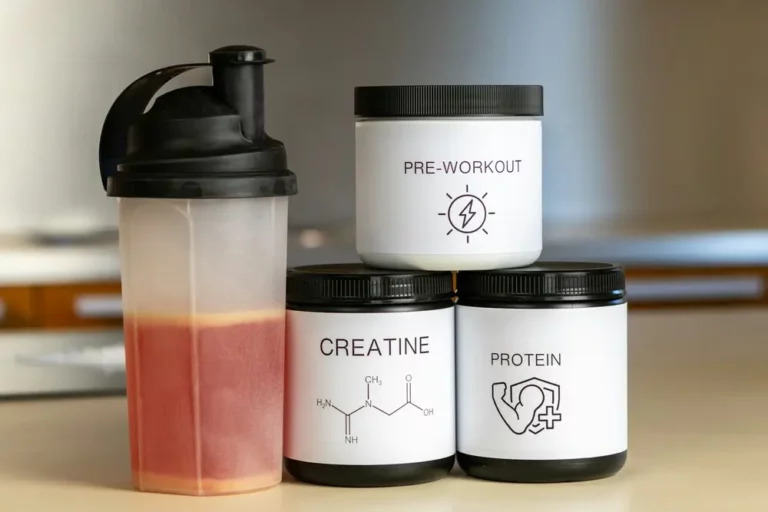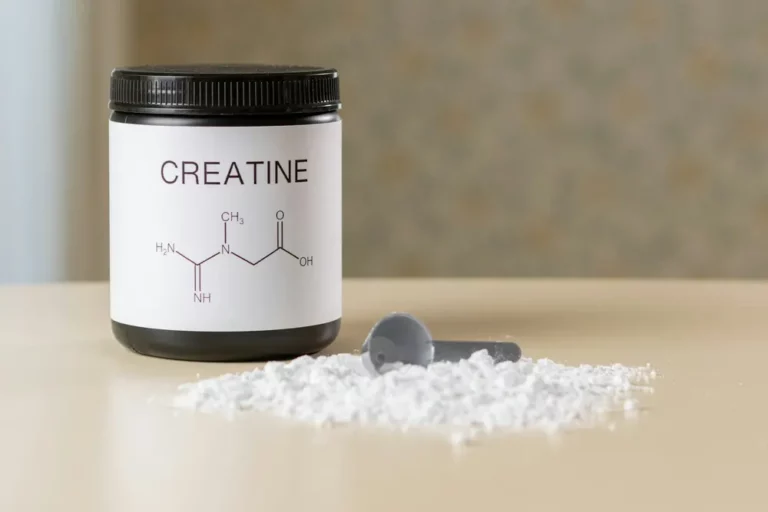Allergic to Pre-Workout? Try These Natural Boosters Instead
Ever found yourself itching like crazy after taking your pre-workout? You’re not alone. That sudden urge to scratch everywhere might have you wondering, “Am I allergic to my pre-workout?” It’s a question that pops up for many first-timers and even some seasoned gym goers.
Pre-workout tingles are pretty common, but when does it cross the line into an allergic reaction? It’s crucial to know the difference between normal side effects and signs that you might need to ditch your current supplement. Let’s dive into what’s behind that itch and when you should be concerned.
What Are Pre-Workout Supplements?
When I first dipped my toes into the world of fitness and bodybuilding, the term “pre-workout supplements” seemed to pop up everywhere I turned. It didn’t take long for me to discover that these supplements are specifically designed to enhance workout performance and endurance. Essentially, they’re a blend of ingredients taken before exercise to give you that extra ‘kick,’ helping you push harder and longer. The primary goal of pre-workout supplements is to increase energy levels, improve focus, and facilitate quicker recovery after workouts. From my experience, they can be a game-changer, transforming a sluggish, unmotivated gym session into a powerhouse of productivity and vigor.
Common Ingredients in Pre-Workout Formulas
Diving deeper into the world of pre-workouts, I’ve come to learn that the effectiveness of these supplements often boils down to their key ingredients. Here’s a breakdown of some of the most common ones you’ll find:
- Caffeine: This is arguably the backbone of many pre-workout formulas. Known for its ability to increase alertness and ward off tiredness, caffeine gives you that instant energy boost. It’s no wonder it’s a staple in many pre-workout blends.
- Beta-Alanine: Remember the tingling sensation I mentioned earlier? That’s often due to beta-alanine, an amino acid that helps combat muscle fatigue, allowing you to squeeze out a few more reps.
- Creatine: Widely researched and praised for its role in improving strength and power, creatine is another popular ingredient. By increasing the body’s ability to produce energy rapidly, it’s especially useful for high-intensity workouts.
- BCAAs (Branched-Chain Amino Acids): These amino acids are crucial for muscle growth and recovery. Incorporating BCAAs into pre-workout supplements makes sense, as they can reduce muscle soreness and expedite recovery.
- Nitric Oxide Precursors (such as L-arginine or L-citrulline): These compounds help improve blood flow, which can lead to better oxygen and nutrient delivery to muscles during workouts. The result? Improved performance and potentially quicker recovery.
Understanding what goes into your pre-workout can make a big difference in how you approach your training sessions. I’ve become more mindful of reading labels and recognizing which ingredients serve my fitness goals best.
Potential Allergic Reactions to Pre-Workout Supplements
When I first started exploring the world of fitness supplements, it never crossed my mind that something designed to enhance my workout could potentially cause an adverse reaction. But, as I delved deeper, I realized that allergic reactions to pre-workout supplements are more common than most of us think. It’s crucial to understand what signs to look for and which ingredients might be the culprits.
Identifying Allergic Reactions
The first step in dealing with any adverse reaction is identifying it. The symptoms can range from mild to severe, including skin rashes, itching, swelling, and, in more severe cases, difficulty breathing or anaphylaxis. Pre workout itch is hard to get rid of and it is very frequent, especially among people who have started using this supplement for the first time. If you’ve ever started a new supplement regimen and noticed unusual symptoms, it could be your body signaling an allergic reaction. In some cases, pre workout can lead to throwing up, so it is important to track changes in your overall health once you start using creatine. I always recommend monitoring any new changes to your body closely when trying out a pre-workout supplement for the first time.
Common Allergens in Pre-Workout Supplements
It surprised me to learn just how many potential allergens can be lurking in pre-workout formulas. Here are a few common ones:
- Soy Lecithin: Often used as an emulsifier, soy is a common allergen that can cause reactions in sensitive individuals.
- Whey Protein: Derived from milk, whey protein can cause issues for those with a dairy allergy or lactose intolerance.
- Artificial Sweeteners: Ingredients such as sucralose or aspartame are common in pre-workouts to enhance flavor without adding calories. However, they can also trigger allergic reactions in some people.
- Coloring Agents: Artificial colors added to make the supplements visually appealing might look pretty, but they can also lead to reactions in those sensitive to these additives.
Understanding these potential triggers can be a game-changer in optimizing your fitness journey. Being aware of what’s in your pre-workout and knowing how your body reacts are vital steps in ensuring your health remains a top priority as you push towards your fitness goals.
Managing Allergic Reactions to Pre-Workout Supplements
Discovering you’re allergic to a pre-workout supplement can be a frightening experience. I’ve learned some crucial steps and measures that can help manage and mitigate the effects of an allergic reaction. Let’s dive in.
Immediate Steps To Take in Case of an Allergic Reaction
The moment you suspect an allergic reaction after taking a pre-workout supplement, it’s vital to act quickly. Here’s what I’ve found useful:
- Stop the Supplement: First and foremost, discontinue any further use of the supplement immediately. This step is crucial to prevent exacerbating the reaction.
- Identify Symptoms: Look out for common allergic reaction symptoms like hives, difficulty breathing, and swelling. Knowing these can help you decide how urgently you need to act.
- Over-the-Counter Relief: For mild reactions, antihistamines can provide quick relief from symptoms such as itching and swelling. However, these are temporary solutions and not a substitute for professional medical advice.
- Hydrate: Drink plenty of water. It may help flush out the allergens from your system more quickly.
Seeking Medical Attention and Reporting Allergies
For more severe reactions, or if symptoms persist, seeking medical attention is non-negotiable. Here’s why:
- Professional Care: A doctor can offer treatment options like prescription medication or emergency care for severe reactions. They might also perform allergy tests to identify specific triggers.
- Documentation: Documenting your allergic reaction with a healthcare professional ensures it’s on your medical record. This can be essential for avoiding similar incidents in the future.
- Report to Manufacturers: Reporting your allergic reaction to the supplement manufacturer or the FDA’s MedWatch program can help others. These organizations monitor adverse effects and can issue warnings or recalls if necessary.
Pre-workout probably won’t kill you, but it is very important to be cautious when adding it to your routine. Above all, it’s important to listen to your body and prioritize your health over any fitness goals tied to supplement use. Remember, alternatives to pre-workout supplements, such as natural energy boosters, exist, and exploring these can be as effective without risking your health.
Safe Use of Pre-Workout Supplements
When it comes to getting the most out of my fitness routine, I’ve always been keen on exploring various supplements to boost my energy and performance. However, with the convenience and benefits that pre-workout supplements offer, there’s also a need to approach their use with caution. It’s crucial to ensure that these supplements do not adversely impact our health, particularly for those with allergies or sensitivities. Let’s dive into some key practices for the safe use of pre-workout supplements.
Importance of Reading Labels and Understanding Ingredients
The first step I’ve learned in safely navigating the world of pre-workout supplements is to read labels meticulously. Manufacturers are required to list the ingredients, but it’s up to us to understand what these ingredients mean for our bodies. For instance, ingredients like synephrine and beta-alanine are common, yet they can cause adverse effects like cardiovascular issues or a tingling sensation known as paresthesia. By understanding what’s in a supplement, I can make informed decisions about what I’m putting into my body.
Moreover, recognizing allergens is crucial. Even if a supplement promises enhanced performance, it’s not worth the risk if it contains something I’m allergic to. I always look out for any ingredient that might trigger an allergic reaction and steer clear of products containing them.
Consulting with Healthcare Providers Before Use
Perhaps the most valuable advice I’ve adopted is to consult with a healthcare provider before beginning any new supplement regimen. I cannot stress enough how important it’s been for me to get a professional opinion, especially when trying to balance the benefits of supplements with my personal health considerations.
My healthcare provider helped me understand how certain supplements could interact with my existing health conditions or medications. This guidance was pivotal when I discovered I had a sensitivity to certain stimulants commonly found in pre-workout formulations.
By having a thorough discussion with my doctor, I’ve managed to find alternatives that align with my health needs without compromising on my fitness goals. This personalized approach ensures that I’m not only optimizing my workout performance but also prioritizing my overall well-being.
Remember, the goal of incorporating supplements into your fitness routine should enhance your health and performance, not compromise it. By taking the time to understand what you’re consuming and consulting with professionals, you can safely enjoy the benefits pre-workout supplements have to offer.
Alternatives to Pre-Workout Supplements
Finding out I’m allergic to pre-workout supplements was a bit of a blow, especially as they’d become a staple in my fitness routine. But I didn’t let it stop me. Instead, I dove into research and consultations to discover effective alternatives that don’t compromise my health. Here’s what I’ve learned along the way.
Natural and Allergen-Free Alternatives
The journey to finding allergen-free alternatives was eye-opening. I discovered that natural foods and beverages could offer similar boosts to my workouts. For starters, black coffee became my go-to morning pick-me-up. Packed with caffeine, it sharpens my focus and increases my energy levels without the scary side-effects of synthetic stimulants.
Bananas also climbed to the top of my list. These potassium-rich fruits not only prevent muscle cramps but also serve as a fantastic energy source. Beetroot juice was another game-changer for me. It’s known to enhance blood flow and improve endurance, making those long workout sessions feel a tad easier.
What truly surprised me was the effectiveness of water with B-vitamins. Staying hydrated is crucial, and B-vitamins play a vital role in energy production. So, combining the two felt like hitting two birds with one stone. Plus, it’s reassuring to know exactly what’s going into my body – no hidden allergens or harmful substances.
Adjusting Diet and Exercise Regimen Without Supplements
I’ll be honest; relying on whole foods and natural sources for energy required some adjustments to my diet and exercise routine. It meant planning my meals more strategically to ensure I had enough fuel for my workouts. Incorporating protein-rich foods and complex carbohydrates became a priority. Meals with lean meats, quinoa, and sweet potatoes not only supported my muscle recovery but also kept me energized throughout the day.
Hydration took on a whole new level of importance too. I made sure to constantly sip on water or herbal teas, especially in the hours leading up to my workout. It made a noticeable difference in my stamina and overall performance.
As for my workout schedule, I learned to listen to my body more. Instead of pushing through with the help of stimulants, I fine-tuned my routine based on how I felt each day. Incorporating more rest days and low-intensity activities like yoga and stretching helped me maintain balance while avoiding burnout. This holistic approach not only improved my physical health but also my mental well-being.
Switching to these alternatives hasn’t been a downgrade. If anything, it’s enhanced my fitness journey, proving that I don’t need synthetic supplements to achieve my goals.
Conclusion
I’ve learned that being allergic to pre-workout doesn’t mean you have to compromise on your fitness journey. By exploring natural alternatives and adjusting my diet, I’ve found a way to fuel my workouts effectively. It’s all about listening to my body and making health-conscious choices. Remember, achieving your fitness goals is possible without synthetic supplements. Let’s embrace a more natural approach to our pre-workout routine!
FAQ – Frequently Asked Questions
What are some natural alternatives to pre-workout supplements?
Natural alternatives to pre-workout supplements include black coffee for caffeine, bananas for quick energy and potassium, beetroot juice for improved blood flow, and water with B-vitamins for energy metabolism. Incorporating these into your routine can offer health and energy benefits without the need for synthetic supplements.
Can changing my diet improve my workout performance?
Yes, adjusting your diet to include more protein-rich foods, complex carbohydrates, and staying well-hydrated can significantly improve workout performance. Smart dietary choices help in muscle recovery, maintaining energy levels, and overall physical health which directly impacts your fitness achievements.
How important is hydration in enhancing workout performance?
Hydration is crucial for enhancing workout performance as it affects almost every bodily function. Proper hydration helps maintain blood volume, regulate body temperature, and ensure the efficient transport of nutrients to the cells. Staying well-hydrated can prevent fatigue, regulate energy levels and support optimal physical performance.
Can listening to my body improve my workout routine?
Yes, listening to your body is essential for improving your workout routine. It involves understanding and responding to your body’s needs, whether it’s resting due to fatigue or soreness, or pushing harder when you have the energy. This holistic approach not only prevents injuries but also promotes long-term health and fitness.
Is it possible to achieve fitness goals without synthetic supplements?
Absolutely, achieving fitness goals without synthetic supplements is possible by focusing on natural energy-boosting alternatives, a balanced diet, adequate hydration, and listening to your body’s needs. These practices support your body’s natural functions, improving physical and mental health, and can lead to sustainable fitness achievements.







